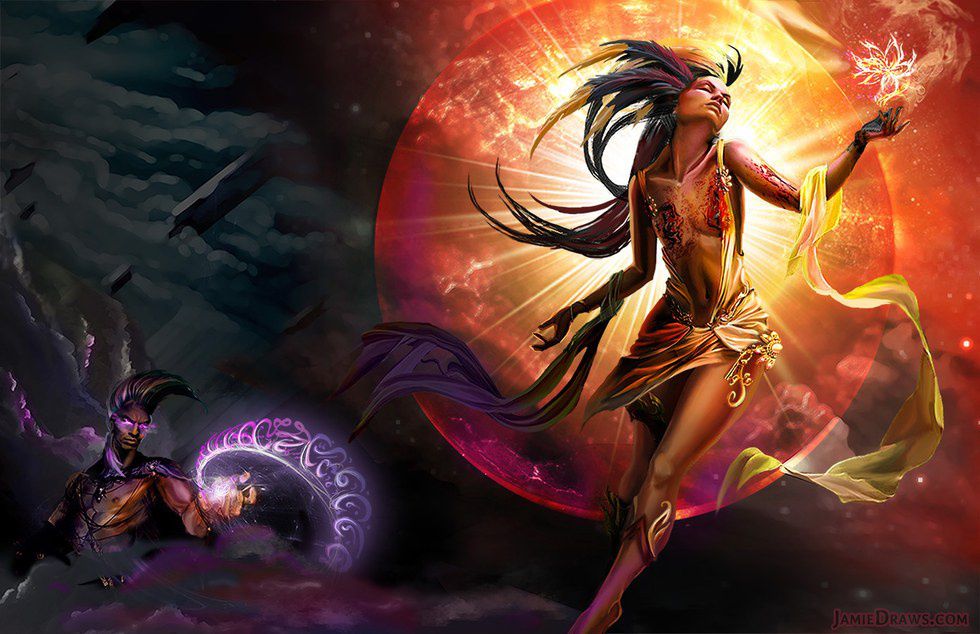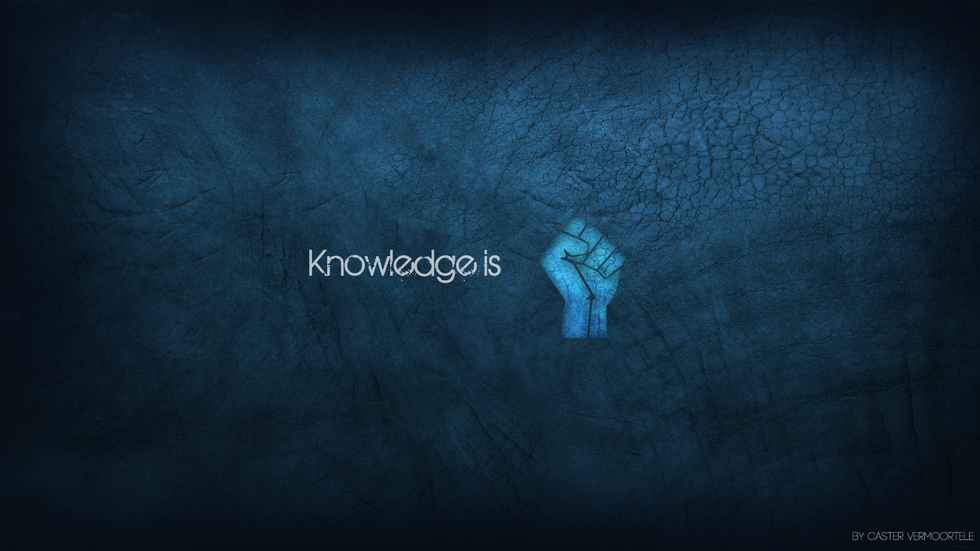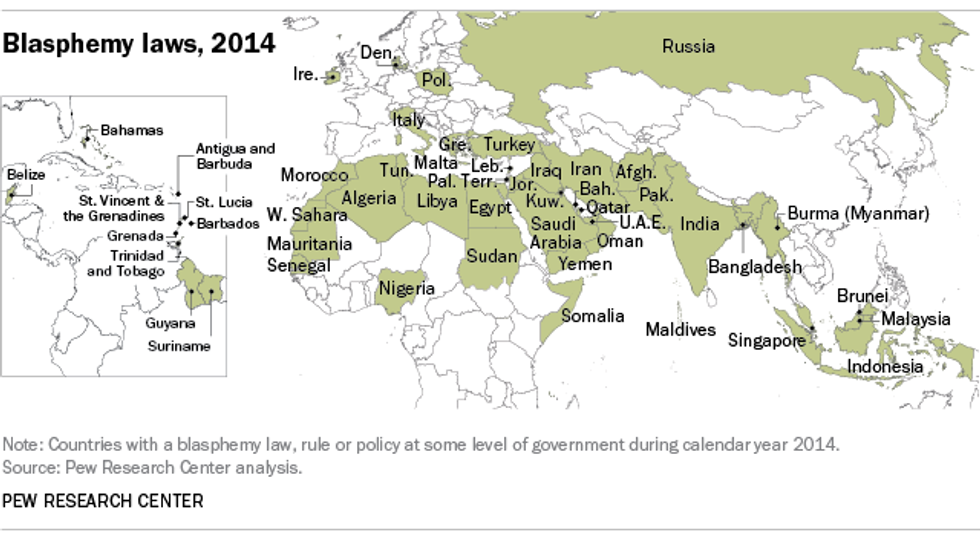As human beings, we're naturally curious. We want to know why things are the way they are, and how they came to be. Why do people act a certain way? Why does this happen instead of something else? Why am I here? How am I here? We've been asking these questions since the beginning of time. However, as we asked those questions and failed to find an accurate or satisfying answer, we created our own reasons and formulated our own timelines of how certain things came to be. Most of the times, these were fanciful explanations, but it’s easy to see how our fashioned explanations can be detrimental.
Once upon a time, we were fascinated with Lightning. Some of us still are till this day. However, we now have scientific explanations for it: how it forms and how and when it occurs. During the time of the gods, the Greeks believed that Lightning was the god, Zeus' weapon. Lightning was his work and anywhere he hit was considered sacred.
Per Inuit mythology, particularly to the Inuit of Greenland, Anningan was the Moon god and Malina, his sister, was the sun goddess. They believed that after a horrible altercation between the siblings, Anningan chased after his sister into the sky, who became the sun and he became the moon soon after. As he chases his sister across the sky, Anningan often forgets to eat and gradually becomes thinner. So, every month, Anningan takes three days to eat and then reappears. We now attribute Anningan’s gradual shrinkage to the phases of the moon, mainly the crescent and his disappearance to the New moon.
It's admirable to want answers. We've all heard from one person or another that "Knowledge is Power." Knowledge IS power, but dare I say, only accurate knowledge is power. It doesn't do anyone any good to acquire false knowledge. It doesn’t help you grow, and it doesn’t help anyone else that you encounter. If anything, you’ll only introduce a way of thinking that becomes a detriment to anyone who hears it.
It’s okay to not know. What’s wrong with saying, “I don’t know”? That’s the most honest thing you can say. There is no reason to conjure up “new” information to explain what is happening in the world or to explain why things are the way they are. Sometimes we don’t know, and that’s okay. In time, we’ll figure it out. One google search will tell you all the things we used to believe to be true. Some of it is hilarious, others are just ridiculous. For example, known for his telescope technology and discovery of Uranus, popular scientist, William Herschel believed that the Sun was cold and can and does support life.
Stories that stem from Inuit and Greek mythology or beliefs like the one William Herschel held aren’t inherently harmful. None of the beliefs I mentioned are. On the other hand, failing to say, “I don’t know” and conjuring up fanciful answers sometimes lead to considerable harm. Beliefs aren’t always private. No matter how something exists whether through social construction or otherwise, they have real consequences. In one culture, believers will be revered and nonbelievers vexed while in another, the opposite will be true.
Look at these maps from the Pew Research Center, showing the countries in which apostasy and blasphemy are still outlawed.
It’s important that we find the answers first before we assert our claims. We need to be careful of the information we introduce into our social circles because they spread like wildfire. You don’t understand the impact you may have. Keep asking questions and keep pondering them. Maybe you’ll figure out the answer, but before you assert it to be true, find that out first too. If you were wrong, just say, “I don’t know,” and keep trying.









 Going to the cinema alone is good for your mental health, says science
Going to the cinema alone is good for your mental health, says science












 women in street dancing
Photo by
women in street dancing
Photo by  man and woman standing in front of louver door
Photo by
man and woman standing in front of louver door
Photo by  man in black t-shirt holding coca cola bottle
Photo by
man in black t-shirt holding coca cola bottle
Photo by  red and white coca cola signage
Photo by
red and white coca cola signage
Photo by  man holding luggage photo
Photo by
man holding luggage photo
Photo by  topless boy in blue denim jeans riding red bicycle during daytime
Photo by
topless boy in blue denim jeans riding red bicycle during daytime
Photo by  trust spelled with wooden letter blocks on a table
Photo by
trust spelled with wooden letter blocks on a table
Photo by  Everyone is Welcome signage
Photo by
Everyone is Welcome signage
Photo by  man with cap and background with red and pink wall l
Photo by
man with cap and background with red and pink wall l
Photo by  difficult roads lead to beautiful destinations desk decor
Photo by
difficult roads lead to beautiful destinations desk decor
Photo by  photography of woman pointing her finger near an man
Photo by
photography of woman pointing her finger near an man
Photo by  closeup photography of woman smiling
Photo by
closeup photography of woman smiling
Photo by  a man doing a trick on a skateboard
Photo by
a man doing a trick on a skateboard
Photo by  two men
two men  running man on bridge
Photo by
running man on bridge
Photo by  orange white and black bag
Photo by
orange white and black bag
Photo by  girl sitting on gray rocks
Photo by
girl sitting on gray rocks
Photo by  assorted-color painted wall with painting materials
Photo by
assorted-color painted wall with painting materials
Photo by  three women sitting on brown wooden bench
Photo by
three women sitting on brown wooden bench
Photo by 
 Photo by
Photo by  Photo by
Photo by  Photo by
Photo by  Photo by
Photo by 


 people sitting on chair in front of computer
people sitting on chair in front of computer











